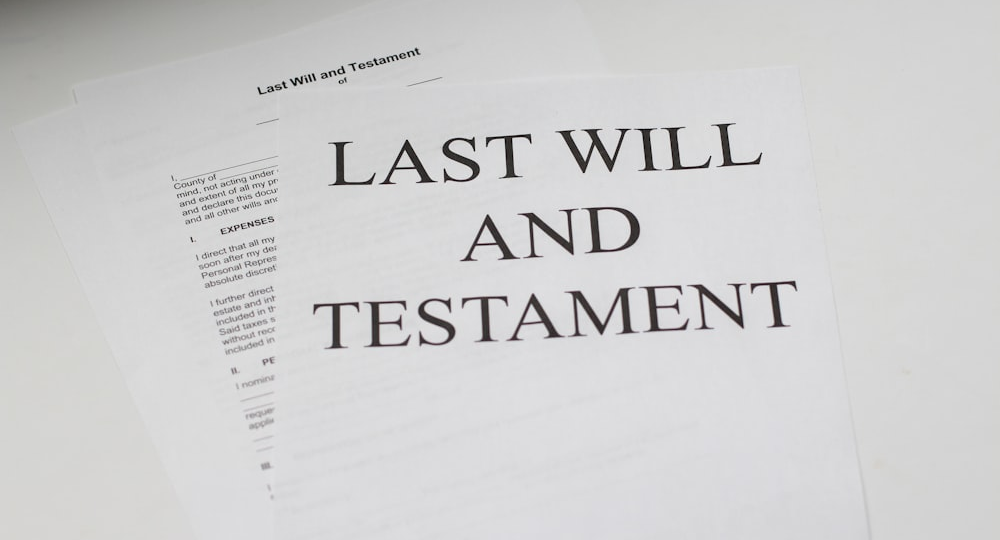
Estate planning is an essential aspect of financial management that ensures your assets are distributed according to your wishes after your passing. In Canada, the process involves various legal considerations, making it crucial to understand the details involved. From drafting wills to minimizing tax liabilities, estate planning encompasses a range of strategies aimed at safeguarding your legacy and providing for your loved ones.
This blog will explore the fundamentals of estate planning in Canada, highlighting key components and legal requirements that individuals should be aware of to effectively manage their estates. Read on for more!
What is Estate Planning?
Estate planning refers to the process of arranging for the management and distribution of your assets upon your death or incapacitation. It involves making critical decisions regarding your finances, properties, and personal belongings to ensure they are handled according to your wishes. The primary goal of estate planning is to minimize taxes, avoid probate complications, and provide for your beneficiaries in the most efficient manner possible.
In Canada, estate planning is governed by federal and provincial laws, which dictate how assets are transferred, taxed, and administered. Without proper estate planning, the distribution of assets may be subject to lengthy legal proceedings and unnecessary tax burdens, potentially leading to disputes among beneficiaries.
Estate Planning in Canada
Estate planning in Canada is a multifaceted process that requires careful consideration of various factors, including family dynamics, financial objectives, and legal requirements. While the specifics of estate planning may vary from province to province, certain fundamental principles apply across the country.
One of the primary documents in estate planning is the Last Will and Testament, commonly referred to as a will. A will is a legal document that outlines how you want your assets to be distributed after your death. It allows you to designate beneficiaries, appoint guardians for minor children, and name an executor to oversee the administration of your estate. Without a valid will, your assets may be distributed according to provincial intestacy laws, which may not align with your wishes.
In addition to a will, other estate planning tools and strategies may be utilized to achieve specific objectives. These may include trusts, powers of attorney, and insurance policies. Trusts, for example, can be used to protect assets, provide for minor children, or minimize tax liabilities. Powers of attorney allow you to appoint someone to make financial or healthcare decisions on your behalf in the event of incapacity. Insurance policies, such as life insurance, can provide liquidity to cover estate taxes or debts and ensure your beneficiaries are adequately provided for.
Who Can You Appoint As Your Estate Trustee in Canada?
Your estate trustee will be responsible for carrying out your wishes as outlined in your will, settling your debts, and distributing your assets to your beneficiaries. In Canada, selecting the right estate trustee is paramount to ensure the efficient administration of your estate.
So, who can you appoint as your estate trustee in Canada?
Family Member or Friend: Many people choose a trusted family member or friend to act as their estate trustee. This individual should be reliable, organized, and capable of handling financial matters responsibly. It’s essential to have open communication with your chosen trustee and ensure they are willing to take on the role.
Professional: In some cases, individuals opt to appoint a professional, such as a lawyer, accountant, or trust company, to act as their estate trustee. These professionals have expertise in estate administration and can provide impartiality and accountability. However, it’s crucial to weigh the costs associated with hiring a professional trustee.
Wills and Estates Lawyer: A wills and estates lawyer can also serve as your estate trustee. These legal professionals specialize in estate planning and administration, making them well-equipped to handle the complexities of executing your will. They can offer guidance throughout the process, ensuring that your wishes are carried out accurately and efficiently.
Co-Trustees: You can appoint multiple individuals or entities to act as co-trustees, sharing the responsibilities of estate administration. This approach can provide a balance of skills and perspectives, ensuring thorough oversight of the process. However, it’s essential to choose co-trustees who can work together effectively and make decisions collaboratively.
Why Get Started With Estate Planning?
Protecting Your Assets: Estate planning allows you to decide how your assets will be distributed after your passing. Without a proper plan in place, the state laws will determine the distribution, which might not align with your wishes. By working with a wills and estates lawyer, you can ensure that your assets are distributed according to your preferences, minimizing conflicts among beneficiaries.
Providing for Your Loved Ones: One of the primary goals of estate planning is to provide financial security for your family members and dependents. Through tools such as trusts and life insurance policies, you can ensure that your loved ones are taken care of even after you’re no longer around. A skilled lawyer can help you create a comprehensive plan tailored to your family’s needs and circumstances.
Minimizing Tax Liability: Estate taxes can significantly diminish the value of your estate, leaving less for your heirs. However, with strategic planning and the use of legal instruments like trusts and charitable donations, you can minimize the tax burden on your estate. A knowledgeable wills and estates lawyer can help you deal the complex tax laws and implement strategies to preserve your wealth.
Avoiding Probate Delays and Expenses: Without proper estate planning, your assets may be tied up in probate court for months or even years, leading to unnecessary delays and expenses. By creating a well-structured estate plan, you can streamline the distribution process and spare your loved ones from the hassle of probate proceedings. An experienced lawyer can assist you in drafting documents that bypass probate or expedite the process.
Key Components of Estate Planning
Estate planning encompasses a multitude of vital components aimed at safeguarding your assets and ensuring your wishes are fulfilled even after you’re no longer able to express them. From wills to tax planning strategies, each element plays a crucial role in shaping the legacy you leave behind.
Will: Undoubtedly a cornerstone of estate planning, a will serves as the primary document where you articulate your desires regarding asset distribution, guardianship for minor children, and other critical matters. Its importance cannot be overstated, as it provides clarity and legal validity to your intentions. Regular updates to your will are imperative to accommodate changes in your life circumstances and preferences, ensuring they accurately reflect your wishes.
Trusts: Trusts stand as versatile instruments within estate planning, offering a spectrum of benefits ranging from asset protection to tax efficiency. By establishing trusts, you can effectively manage the distribution of your assets, shield them from creditors, and provide for the financial well-being of your beneficiaries.
Whether it’s a revocable living trust for flexibility during your lifetime or an irrevocable trust for specific asset protection purposes, integrating trusts into your estate plan can offer invaluable advantages.
Powers of Attorney: In the event of incapacity, powers of attorney grant designated individuals the authority to make critical decisions on your behalf. Whether it’s about legal, financial, or healthcare matters, these documents ensure that trusted agents can act in your best interests when you are unable to do so yourself.
Selecting reliable individuals to hold power of attorney empowers you to maintain control over your affairs and alleviate concerns about their management during periods of incapacity.
Beneficiary Designations: Beyond the scope of a will or trust, beneficiary designations directly dictate the distribution of certain assets, such as life insurance policies, retirement accounts, and bank accounts.
These designations bypass probate and allow for a seamless transfer of assets to designated beneficiaries. Regular review and updating of beneficiary designations are imperative to prevent unintended consequences and ensure alignment with your overall estate plan.
Tax Planning: Integral to comprehensive estate planning is the implementation of tax mitigation strategies aimed at minimizing tax liabilities for your estate and beneficiaries. Whether through lifetime gifting, strategic utilization of tax-deferred accounts, or the establishment of tax-efficient trust structures, proactive tax planning can preserve more of your wealth for future generations while optimizing the distribution of assets according to your intentions.
In essence, each of these key components plays a vital role in crafting a robust estate plan tailored to your unique circumstances and objectives. By diligently addressing these aspects, you can ensure that your legacy endures as a testament to your foresight and care in managing your affairs.
Legal Requirements and Considerations
Estate planning in Canada is a meticulous process governed by a combination of provincial and federal laws. These regulations encompass a spectrum of legal frameworks, including wills, trusts, taxation, and other pertinent considerations. As individuals embark on the journey of estate planning, a comprehensive understanding of the legal requirements and considerations within their respective jurisdictions becomes paramount to ensure the efficacy and validity of their plans.
Wills and Estates Lawyer: Navigating Legal Complexities
One of the foundational steps in estate planning involves consulting a wills and estates lawyer. These legal professionals possess the expertise to navigate the intricate landscape of estate laws, offering invaluable guidance tailored to individual circumstances. By engaging a knowledgeable lawyer, individuals can gain insights into the specific legal requirements pertinent to their province, thereby laying a robust foundation for their estate plan.
Provincial Laws: Understanding Regional Variations
It is crucial to recognize that estate planning laws vary across different provinces in Canada. Each province has its statutes and regulations governing wills, trusts, and probate procedures. For instance, the rules governing the execution of a valid will may differ between Ontario and British Columbia.
Similarly, the treatment of intestacy—when an individual passes away without a will—can vary significantly from one jurisdiction to another. Therefore, individuals must familiarize themselves with the nuances of their provincial laws to ensure compliance and efficacy in their estate planning endeavours.
Federal Considerations: Tax Implications and Beyond
In addition to provincial laws, estate planning in Canada is influenced by federal legislation, particularly concerning taxation. Taxes can significantly impact the distribution of assets and the overall efficacy of an estate plan.
Understanding the tax implications associated with bequests, inheritances, and other forms of wealth transfer is essential for optimizing the outcomes of an estate plan. Furthermore, federal laws may also govern certain aspects of trusts and charitable giving, necessitating careful consideration and strategic planning to achieve desired objectives.
Documentation and Formalities: Ensuring Validity
Estate planning in Canada entails adhering to specific documentation and formalities prescribed by law. For instance, executing a valid will requires compliance with statutory requirements regarding witnesses, signatures, and testamentary capacity.
Failure to adhere to these formalities could render the will invalid, leading to undesirable consequences such as intestacy or disputes among beneficiaries. Therefore, meticulous attention to detail is indispensable in drafting and executing estate planning documents to ensure their validity and enforceability.
Role of a Wills and Estates Lawyer
A wills and estates lawyer plays a vital role in helping individuals and families navigate the complexities of estate planning in Canada. Here are some ways in which they assist their clients:
Legal Expertise: Wills and estate lawyers have specialized knowledge and expertise in estate law, ensuring that your estate plan complies with applicable laws and regulations. They stay abreast of legal developments and best practices to provide informed guidance tailored to your unique circumstances.
Personalized Guidance: Every individual’s situation is unique, and a wills and estates lawyer offers personalized guidance based on your specific needs, goals, and family dynamics. They take the time to understand your objectives and concerns, offering solutions that align with your wishes and priorities.
Drafting and Reviewing Documents: Estate planning involves drafting various legal documents, including wills, trusts, powers of attorney, and healthcare directives. A wills and estates lawyer ensures that these documents accurately reflect your intentions, address potential contingencies, and comply with legal requirements. They also review existing estate plans to identify any gaps or inconsistencies that need to be addressed.
Minimizing Taxes and Fees: Estate planning aims to minimize taxes and administrative fees, maximizing the value of assets passed on to beneficiaries. A wills and estates lawyer employs strategies such as estate freezes, trusts, and tax planning to minimize tax liabilities and optimize the distribution of assets.
Executor and Trustee Services: In addition to providing legal advice, some wills and estates lawyers offer executor and trustee services, overseeing the administration of estates and trusts on behalf of their clients. This ensures that the wishes outlined in your estate plan are carried out efficiently and effectively.
If you’re looking for an experienced and reliable wills and estate lawyer, you’ve come to the right place! At Nanda & Associate Lawyers, we offer a wide range of legal services, including family law, immigration consultation, real estate transactions, personal injury claims, and more.
Whether you need assistance with Canadian spousal sponsorship, Express Entry, or parent sponsorship, our team is here to help. Contact us today for expert legal advice and representation!










